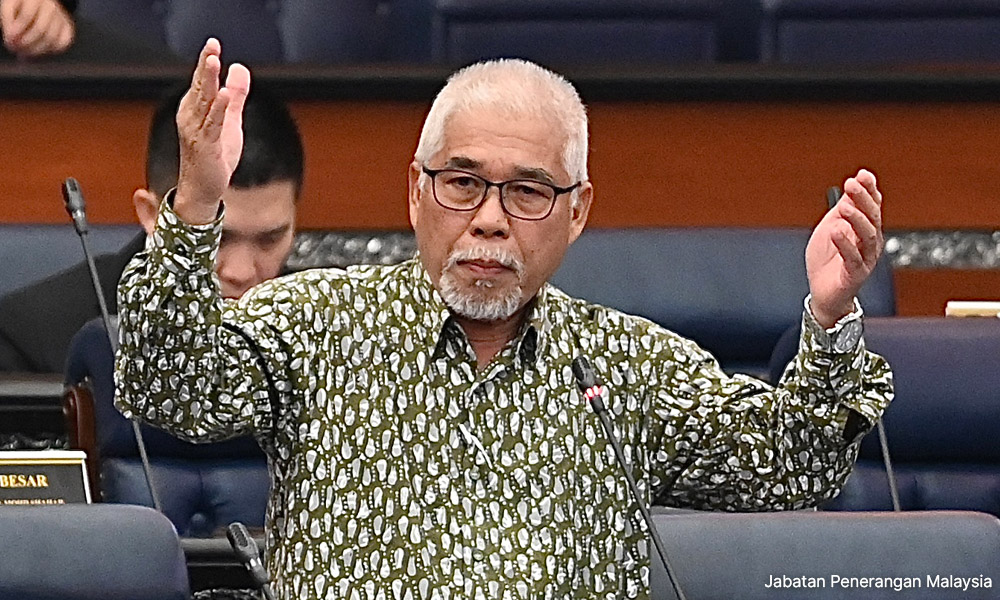Home Minister Saifuddin Nasution Ismail recently announced that the cabinet has given its “full green light” to the proposed amendments to the Federal Constitution related to citizenship.
But many political and legal observers are of the view that the government’s plan to amend the Federal Constitution regarding citizenship law might be counterproductive. Such an amendment might expose itself to internal resistance at the Dewan Rakyat.
It is common knowledge now that some vocal government MPs have vowed to fight the proposal, particularly the part where Putrajaya wants to block foundlings from getting automatic citizenship.
To be fair to the government, there is already a positive amendment which aims to give Malaysian mothers equal rights to confer automatic citizenship on children born overseas.
Therefore, why should the government seek to besmirch its reputation by deciding to amend the Second Schedule, Part III, Section 19(b) of the Federal Constitution which grants abandoned children citizenship by operation of law?
PKR’s Pasir Gudang MP Hassan Abdul Karim believed that the unity government had no reason to amend the provision that grants citizenship by operation of law to abandoned children. He has questioned the need for the government to amend an existing provision which, in his opinion, is extremely good, full of compassion and humanity.

In his view, the government should not snatch the power to grant citizenship to innocent babies from the Federal Constitution and put it in the hands of the home minister and the administrative bureaucracy of the Home Ministry.
Citizenship a cornerstone for rights
As far as I am concerned, Hassan is right when he claimed that foundlings are victims of abandonment by their parents hence there is a moral duty of the country and its citizens to duly protect them.
Previously, DAP lawmaker Ramkarpal Singh told the Dewan Rakyat that the proposed amendments, especially regarding foundlings, are illogical, unreasonable and even a “backward step”. He therefore urged the government either to withdraw or adjourn the amendment.
A United Nations (UN) expert argues that the right to citizenship is a cornerstone for the enjoyment of other rights. Be that as it may, statelessness and denial of equal access to citizenship to foundlings may possibly heighten the risks of exploitation, including human trafficking and contemporary forms of slavery.
By virtue of Article 7 of the Convention on the Rights of the Child (CRC), a state party has an international obligation to duly register immediately a child upon birth and such a child shall have the right from birth to a name, the right to acquire a nationality, and as far as possible, the right to know and be cared for by his or her parents.

To its credit, Malaysia acceded to the CRC in 1995. Nonetheless, Malaysia maintains eight reservations to the CRC.
To be fair, Malaysia has taken a slew of positive steps in its attempt to fulfil its international obligation by acceding and ratifying the CRC. The enactment of the Child Act 2001 (Act 611) is one of such positive steps.
But to the chagrin of many, Malaysia has decided to place its reservation on Article 7 of the CRC. Hence, technically speaking, Malaysia would not be accused of offending the said Article 7 with its proposal to amend the provisions in its apex law that grants citizenship by operation of law to abandoned children. But the decision of the government would bewilder many.
The hanging sword of statelessness
The upshot of the government’s reservation to Article 7 of the CRC would suggest that it takes the view that abandoned children do not have automatic constitutional right to a name or nationality. Therefore the likelihood of such children being unduly exposed to the scourge of statelessness would always be there.
In responding to the critics of such an amendment, Saifuddin has stated that the ministry will only respond to criticism based on facts and figures. He proudly claimed that, based on facts and figures, individuals who applied for citizenship will not face any problem in obtaining citizenship if they meet all the procedures set by the National Registration Department.
He reportedly revealed the number of cases of foundlings applying for citizenship from 2014 to 2023 was 142 applications and all of such applications were approved.

With the greatest respect for the minister, he seems to have missed the point. While we have no problem in congratulating the ministry for having approved all the said 142 applications from 2014 to 2023, he might be unaware that there is always the risk of such applications being rejected by the ministry.
The risk of such a rejection would be probably zero if the abandoned children are duly conferred with automatic citizenship by operation of law as reflected in Second Schedule, Part III, Section 19(b) of the Federal Constitution.
By keeping the existing law intact, the government is in fact adhering to the black letters and spirit of Articles 7 and 8 of the CRC despite the fact it opted to lodge reservations to the Articles.
After all, the very idea of Article 7 of the CRC, in my view, has been consistent with the existing provision contained in Second Schedule, Part III, Section 19(b) of the Federal Constitution. - Mkini
MOHAMED HANIPA MAIDIN is former de facto deputy law minister.
The views expressed here are those of the author/contributor and do not necessarily represent the views of MMKtT.




No comments:
Post a Comment
Note: Only a member of this blog may post a comment.